Choose Your Path

3-Day Becoming Method® Intensive Training

RN-Psychotherapist Program
🕒 6–8 Months
On-line + Live 3-Day Intensive
For Registered Nurses including NPs, CNSs & PSWs
Apply Now


🕒 6–8 Months
On-line + Live 3-Day Intensive
For Registered Nurses including NPs, CNSs & PSWs
Apply Now
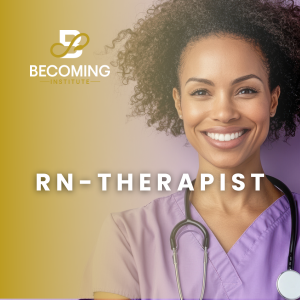
Trauma-informed psychotherapy training for nurses—made practical, supportive, and standards-aligned.
Next Cohort Begins: Jan. 9, 2026
Level 1 offered Monthly
In-person
$9,995
Payment plans available
Certified Trauma Recovery Specialist
RNs, RPNs, NPs, CNSs
RN-Psychotherapists
Blended Format
Live Classes | On-line
288+ Continuing Education Hours


🕒 6–8 Months
On-line + Live 3-Day Intensive
For Registered Nurses including NPs, CNSs & PSWs
Apply Now
Next Cohort: Aug.22-Dec. 12
By submitting your email address, you acknowledge and agree to becominginstitute.ca Terms of Service and Privacy Policy.
Whether you're a seasoned RN or a new grad exploring your path, this program supports your transition into psychotherapy with confidence.




Whether you're just graduating or transitioning into private practice, this program equips you to confidently enter the psychotherapy field—with tools that are trauma-informed, regulator-aligned, and designed specifically for nurses.
You’ll move through the program with support, clarity, and purpose—knowing exactly what’s required to legally, ethically, and skillfully deliver psychotherapy in Ontario.
Apply a structured, trauma-informed approach that helps clients move from coping to transformation—across biological, psychological, and spiritual dimensions.
Complete foundational coursework aligned with CRPO’s required competencies, including advanced therapeutic use of self (SEUS), trauma assessment, and ethical practice.
Gain hands-on skills in trauma-informed documentation, treatment planning, and therapeutic goal setting.
Work alongside expert instructors in case review, peer learning, and feedback-based growth—online and in-person.
Understand how to use your RN license and this credential to pursue legal psychotherapy practice and prepare for future CRPO registration.
Feel ready to step into your role as a nurse–psychotherapist—equipped with knowledge, community, and a renewed sense of professional alignment.
The RN–Psychotherapist Credentialing Program unfolds over six to eight months through three transformative levels. Each phase builds your skills, confidence, and readiness for full-time therapeutic practice.
3-Day Intensive
Offered Monthly
Ground yourself in the Becoming Method®. Explore therapeutic presence, trauma recovery principles, and regulatory alignment.
Real World Experiences
Jan. 9 to Apr. 24, 2026
Complete four core courses and supervised clinical practice aligned with CRPO’s entry-to-practice competencies & CNO Practice standards.
May 1 – Aug. 28, 2026
Step into your new role with confidence through an early career placement. Deliver care, complete a capstone project, and deepen real-world practice.
288 Continuing Education Credits
This comprehensive, multi-level program equips nurses with the trauma recovery skills, regulatory understanding, and supervised clinical experience required to pursue the practice of psychotherapy in Ontario. Rooted in the Becoming Method®—a structured, trauma-informed framework—this pathway builds professional capacity for ethical, client-centered care.
Designed to align with the College of Nurses of Ontario (CNO) practice standards and the entry-to-practice competencies outlined by the College of Registered Psychotherapists of Ontario (CRPO), the program begins with a 3-day intensive focused on therapeutic presence, Safe and Effective Use of Self (SEUS), and foundational trauma assessment. Participants then progress through four core clinical courses and a supervised practicum to meet the requirements for CRPO registration.
In the third phase, students can participate in an Early Career Placement, gaining direct clinical experience while working under the supervision of an employer. During this phase, students receive mentoring and coaching support, and have the opportunity to complete a Major Community Project—a capstone initiative that integrates trauma-informed practice into a real-world setting. This phase supports nurses in building expertise and progressing into full-time psychotherapy employment with confidence and readiness.
Whether you’re seeking to grow your therapeutic scope as a nurse or work toward registration with CRPO, this program offers a guided, step-by-step pathway grounded in regulatory clarity, clinical excellence, and career development.

This 3-day in-person training immerses nurses in the 8 core modalities of the Becoming Method® through hands-on practice, mindfulness, and reflective learning. It builds foundational skills in trauma recovery, emotional intelligence, and therapeutic presence—equipping participants for supervised psychotherapy practice in alignment with CRPO and CNO standards.

BECOMING 102 guides students to deeply explore the self as healer, using mindfulness and reflection to strengthen emotional regulation, cultural humility, and therapeutic presence. Through experiential learning, students begin to understand how their own inner landscape shapes clinical interactions, laying the foundation for Safe and Effective Use of Self (SEUS) in psychotherapy.
BECOMING 302 introduces a holistic trauma assessment model that honours the full mind-body-spirit-community connection. Students learn to identify trauma’s impact across multiple domains and design personalized, culturally attuned care plans rooted in regulation and CRPO-aligned practices.
BECOMING 303 offers a critical, culturally grounded exploration of the legal, ethical, and regulatory standards that shape psychotherapy practice in Ontario. Anchored in the Safe and Effective Use of Self (SEUS), the course challenges students to examine their social location, power, and presence in the therapeutic relationship, building the insight and accountability needed to practice with integrity, cultural safety, and clinical clarity.
BECOMING 304 is a 1,000-hour supervised practicum where students refine and master the Becoming Method® while working directly with clients experiencing depression, anxiety, PTSD, and relationship challenges. Through real-world clinical placements, case consultations, and reflective supervision, students develop the confidence and clinical precision to apply trauma-informed psychotherapy in diverse, community-based settings—meeting CRPO’s Entry-to-Practice requirements with integrity and depth.

This final stage bridges formal training and full-time practice through a structured community placement where students apply their skills in real-world clinical or organizational settings. Working under the supervision of an employer or clinical partner, students deliver trauma-informed care while deepening their mastery of the Becoming Method®.
Throughout this phase, students receive mentorship, participate in professional coaching, and complete a Major Community Project—an applied initiative that strengthens therapeutic leadership and community impact. During the placement, students also have the flexibility to complete additional elective courses from the 12-Month Trauma Recovery Certificate Program, allowing them to specialize further, fulfill continuing education goals, or deepen clinical expertise based on their unique interests.
🧭 No Matter Where You’re Starting From:
Whether you’re exploring psychotherapy for the first time or preparing to certify your expertise, this program grows with you—meeting you where you are and guiding you forward with structure, mentorship, and trauma-informed clinical training. From foundational skills to full certification, you’ll gain the clarity, confidence, and credentials to advance your practice and expand your impact.
Real stories from real practitioners who transformed their practice—and their lives—through the Becoming Method™.
This program provides the clinical skills, therapeutic presence, and structured methodology you need to confidently guide clients through every stage of trauma recovery. You'll not only expand your scope—you’ll transform how you show up in the healing process.
Apply the 8 Trauma Recovery Modalities of the Becoming Method®

Build foundational proficiency in a structured trauma recovery framework that supports clients through emotional processing, nervous system regulation, and personal transformation.
Conduct CNO- and CRPO-Aligned Clinical Assessments

Use a multidimensional trauma assessment model to evaluate psychological, emotional, spiritual, and relational health—then create individualized, trauma-informed care plans with cultural safety in mind.
Open and Close Psychotherapy Sessions with Clarity and Intention

Learn how to establish therapeutic presence, build client trust, and guide each session with structure, clarity, and emotional containment.
Demonstrate Safe and Effective Use of Self (SEUS)

Develop the self-awareness, emotional regulation, and relational attunement required by CRPO to ethically deliver psychotherapy as a nurse.
Integrate Somatic and Mindfulness-Based Tools

Use body-based and reflective practices to co-regulate with clients, reduce distress, and support healing of trauma stored in the nervous system.
Document, Track, and Adjust Treatment Plans

Learn how to ethically document sessions, track client progress, and adapt treatment to meet evolving therapeutic goals in compliance with CRPO and CNO expectations.
Navigate Legal, Ethical, and Professional Standards

Gain clarity on scope of practice, boundaries, informed consent, and documentation—through a lens of both CRPO regulation and CNO nursing standards.
Deliver Psychotherapy Under Supervision

Complete up to 1,000 hours of supervised clinical practice, including direct care, case consultation, and reflection-based learning in hospital and community settings.

Observe Becoming Method® interventions in real time. Watch expert faculty model therapeutic presence, SEUS, and session flow—then reflect and replicate through guided debriefs.

Engage in structured roleplays, therapeutic simulations, and real-time feedback in small group settings. Build the confidence and precision needed for supervised practice and eventual CRPO registration.
Mindful & Somatic Integration

Each day includes movement, guided journaling, and nervous system regulation practices—supporting emotional clarity, trauma attunement, and embodied learning.
Collaborative, Peer-Based Learning

Train alongside a cohort of nurses and allied professionals committed to trauma recovery. Deepen your skills through shared insights, community dialogue, and reflective co-learning.
In just 12 Months, start your new career as a Certified Trauma Recovery Specialist.
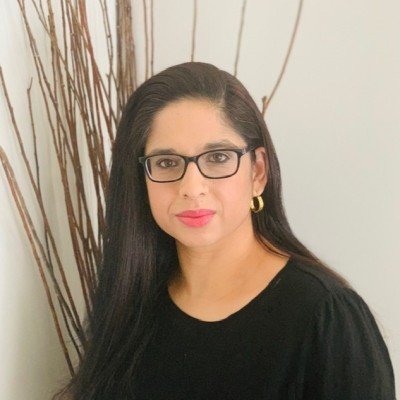
Sophia Ali, MBA, BSW, RSW
Faculty, Becoming Institute | Executive Director, Manitoba Alliance of Health Regulatory Colleges
Specialization: Equity-Informed Leadership, Trauma-Informed Systems Design
Born and raised in Winnipeg on Treaty 1 Territory, Sophia Ali is a dynamic second-generation immigrant, social work leader, and strategic systems thinker. As Executive Director of the Manitoba Alliance of Health Regulatory Colleges, she plays a key role in advancing interprofessional collaboration, policy innovation, and culturally responsive regulation across Manitoba’s health sector.
With a career spanning community health, psychotherapy, and systems leadership, Sophia has held impactful roles at Aulneau Renewal Centre, Klinic Community Health Centre, and Youville Centre. She also operates a private practice, Wisdom Speaks Counselling & Consulting, where she integrates trauma-informed care, clinical social work, and organizational consulting.
Sophia holds a Bachelor of Arts in Psychology, a Bachelor of Social Work, and a Master of Business Administration—reflecting her rare blend of clinical insight and executive acumen. She shares her knowledge widely as a faculty member at the University of Winnipeg, Mohawk College, and the University of Manitoba, where she teaches with a focus on equity, ethics, and leadership.
A dedicated community advocate, Sophia serves on several boards, including the Canadian Race Relations Foundation, the Manitoba Islamic Association Mental Health Initiative, and the Institute of Corporate Directors (Manitoba Chapter). Her work reflects a deep commitment to systems change that empowers practitioners and promotes healing across sectors and communities.
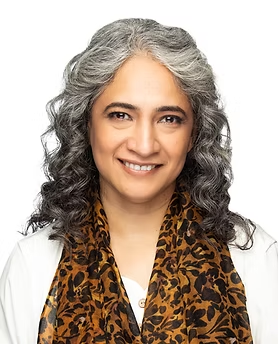
Dr. Afsheen Anwar, Ph.D., C.Psych
Faculty, Becoming Institute | Clinical & Counselling Psychologist
Specialization: Cognitive Behavioural Therapy, Faith-Informed Practice, Relational & Systemic Therapy
Dr. Afsheen Anwar is a Clinical and Counselling Psychologist with over 23 years of experience providing psychological assessment and therapy to individuals, couples, and families in both individual and group settings. Originally from Pakistan and now based in Ontario, she brings a deeply multicultural lens to her practice, drawing from her Southeast Asian and Muslim roots and her years of work across national and international contexts since 2000.
Dr. Anwar is known for her warm, compassionate presence and her ability to meet clients with both professionalism and deep empathy. Her integrative approach to therapy draws from a variety of evidence-based modalities, including cognitive behavioural therapy, emotion-focused therapy, mindfulness, and relational/systemic models. She tailors each treatment plan to the unique needs and worldviews of her clients—including those seeking faith-informed support from major religious traditions.
In addition to her clinical work, Dr. Anwar has been an educator, consultant, and public speaker across diverse cultural and academic settings. She also brings a unique specialization in aviation-related care, offering contextualized services for individuals experiencing flying phobia and for aviation professionals—drawing on her experience as a trained private pilot.
With a lifelong commitment to human growth, resilience, and culturally attuned care, Dr. Anwar continues to make a profound impact in the field of psychotherapy, both in Canada and internationally.

Jenn Cardoso, M.A., RP
Faculty, Becoming Institute | Somatic Coach & Registered Psychotherapist
Specialization: Relational Psychotherapy, Somatic Healing, Trauma-Responsive Care
Jenn Cardoso is a psychotherapist, somatic coach, and educator devoted to helping individuals and couples navigate the complexities of connection, healing, and inner transformation. With a deep respect for both science and soul, she blends somatic and relational approaches to support clients in cultivating clarity, confidence, and intimacy—in their relationships with themselves, others, and the world around them.
Jenn holds a Master’s in Counselling Psychology and is a certified yoga teacher with advanced training in trauma-informed movement and trauma-responsive care. Her therapeutic approach is rooted in presence—body to body, heart to heart—where healing becomes both a clinical process and a sacred invitation to be seen, felt, and heard.
Whether working with individuals, couples, or significant others, Jenn creates an empowering and judgment-free space where clients can safely explore their emotions, identities, and aspirations. She honours each person’s story, while helping them build the practical skills to communicate needs, deepen intimacy, and move toward more fulfilling relationships.
As a faculty member and lecturer with the Becoming Institute, Jenn brings a grounded, heartfelt energy to her teaching. She is known for her embodied presence, clinical integrity, and deep love for the healing journey. Outside of her professional work, she’s a devoted mom to her beloved four-legged companions and a quiet champion of the More-Than-Human world, always guided by a deep belief in interconnection and reverence.
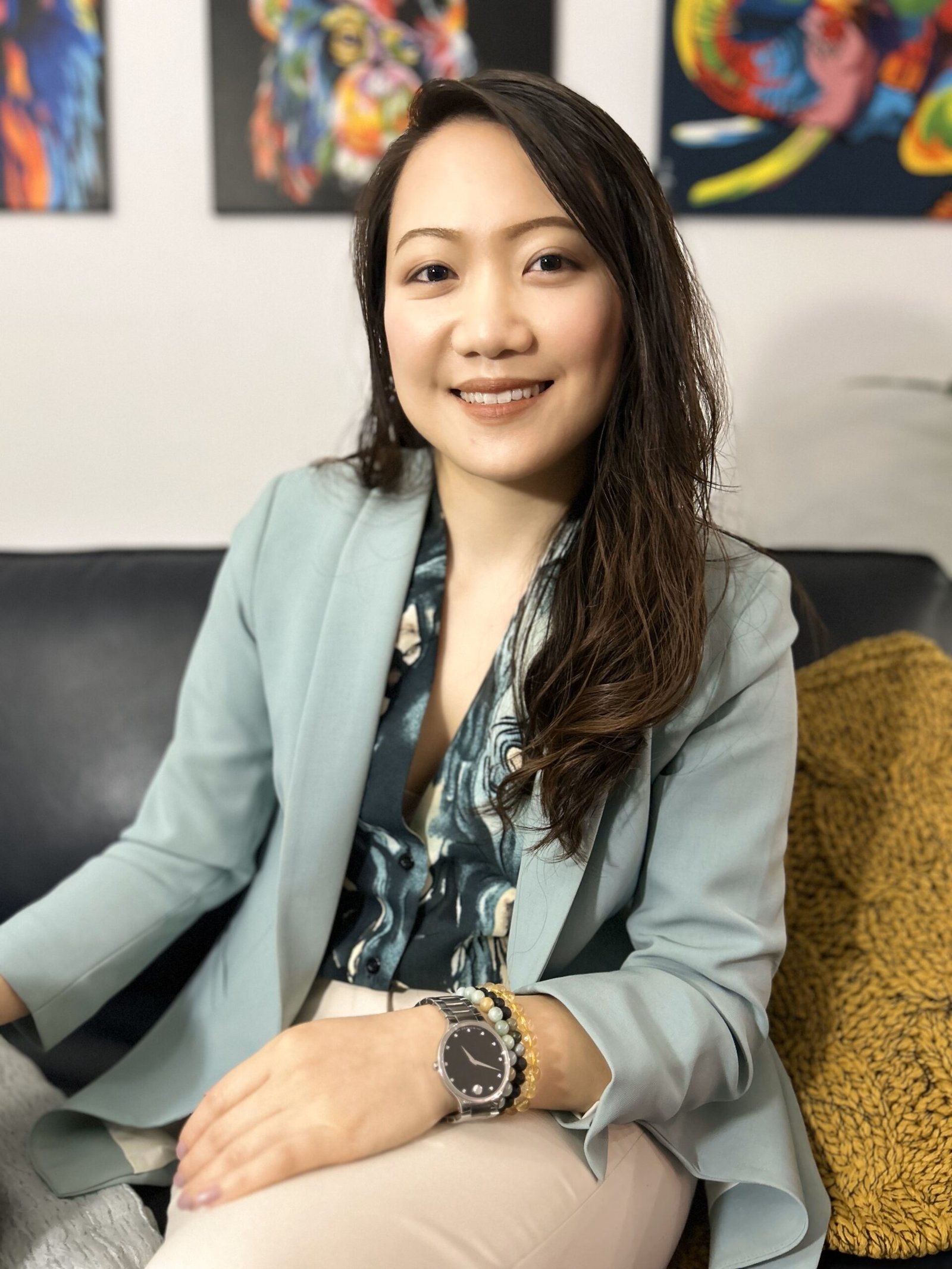
Jacklyn Chung, M.Ed., RP, CCC
Faculty, Becoming Institute | Founder, Karkiu Psychotherapy and Counselling
Specialization: Culturally Sensitive Psychotherapy, Trauma-Informed Care, Feminist & Relational Practice
Jacklyn Chung is a Registered Psychotherapist, educator, and the founder of Karkiu Psychotherapy and Counselling. With over a decade of experience in mental health and education, she brings a grounded, client-centered approach to healing—one that honours identity, lived experience, and the complexity of being human.
Jacklyn holds a Master of Teaching from the Ontario Institute for Studies in Education (OISE) and a Master of Education in Counselling Psychology from the University of Ottawa. Her career spans clinical work in post-secondary institutions, community organizations, private group practice, and corporate wellness settings. At the heart of her practice is a deep respect for the healing power of relationships and the courage it takes to live authentically.
Drawing on trauma-informed, culturally sensitive, and feminist frameworks, Jacklyn helps clients navigate issues related to anxiety, depression, trauma, identity, grief, and relationships. Her therapeutic style is intuitive, compassionate, and focused on helping individuals unpack their past, regulate their inner experience, and create lives aligned with their values.
As Clinical Director at Karkiu Psychotherapy, Jacklyn is committed to building a practice that centers safety, authenticity, and empowerment. As a faculty member at the Becoming Institute, she shares that same vision with students—encouraging future therapists to lead with humility, curiosity, and a deep belief in collective healing.
Whether in the therapy room or the classroom, Jacklyn creates spaces where people can rediscover themselves, build resilience, and embrace the healing possibilities of community and connection.

Jamieson Eakin, MACP, BFA, RP
Faculty, Becoming Institute | Registered Psychotherapist
Specialization: LGBTQ+ Mental Health, Narrative Therapy, Somatic & Creative Approaches
Jamieson Eakin is a Registered Psychotherapist, artist, and educator dedicated to creating inclusive, affirming spaces for healing and growth. He specializes in working with members of the 2SLGBTQ+ and BIPOC communities, neurodivergent individuals, and those navigating trauma, identity, and relationship challenges. His approach is rooted in compassion, curiosity, and a deep belief in the power of meaning-making to transform lives.
Jamieson’s practice blends Narrative, Cognitive, and Dialectical Behaviour Therapy with Internal Family Systems, somatic strategies, and social-constructivist frameworks. He fosters a person-centered, strengths-based environment that supports self-efficacy, mindfulness, and creative expression as tools for emotional regulation and personal empowerment.
A graduate of Yorkville University’s Master of Arts in Counselling Psychology program, Jamieson also holds a B.A. in Counselling Psychology and a B.F.A. with honours in Music from York University. His journey into psychotherapy began through community outreach and the arts—where he witnessed firsthand the role of creativity in processing emotion, accessing inner wisdom, and building supportive networks.
As a faculty member at the Becoming Institute, Jamieson brings his interdisciplinary lens and lived experience into the classroom, inspiring students to cultivate clinical intuition, cultural humility, and authenticity. His work reflects a commitment to accessibility, liberation, and healing that is both personal and collective.
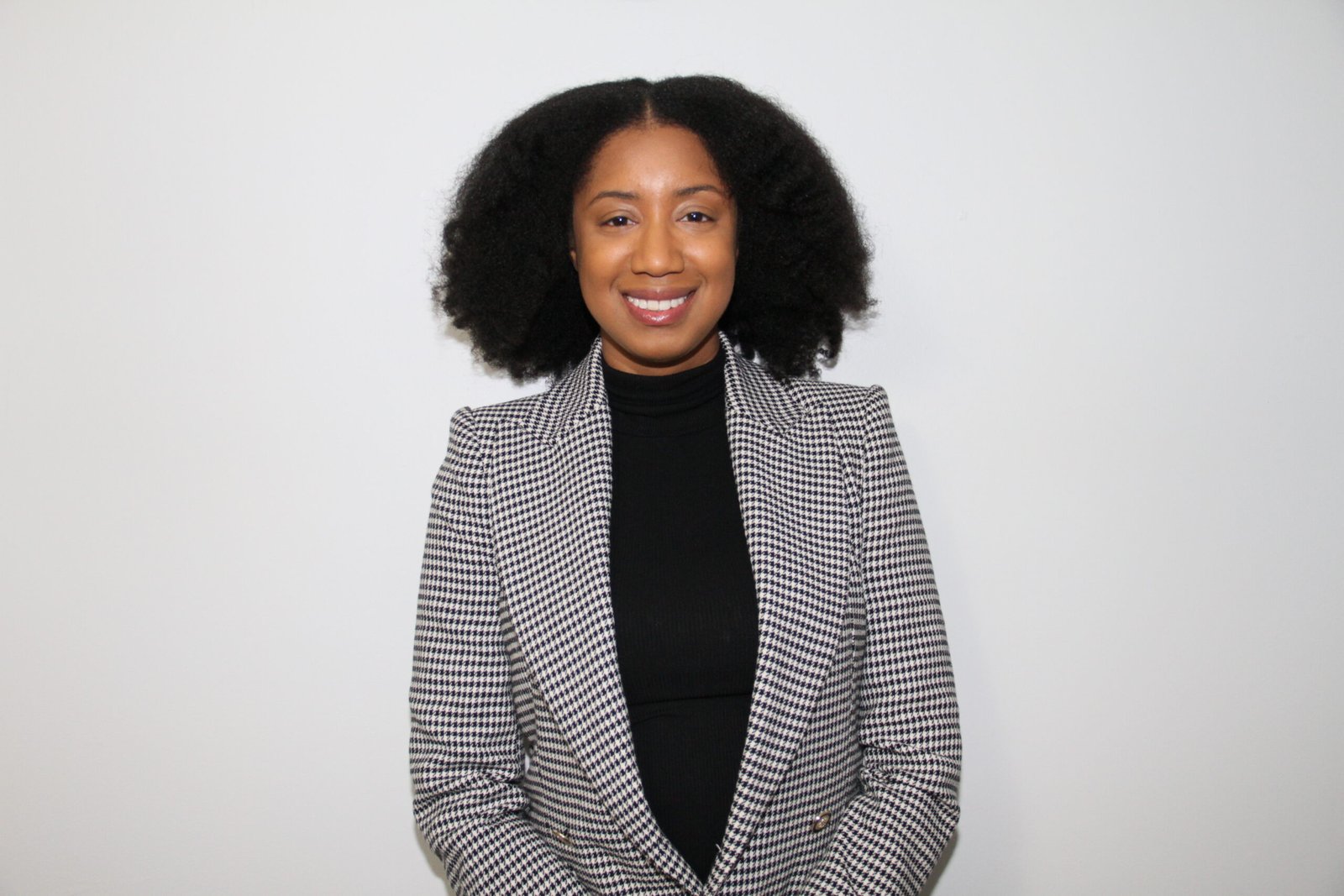
Chantal Gray, MSW, RSW
Faculty, Becoming Institute | Co-Founder & Clinical Director, Winrose Oasis Counselling Services
Specialization: Trauma-Informed Practice, Child & Family Therapy, Cultural Healing & Intergenerational Care
Chantal Gray is a Registered Social Worker, clinical leader, and community healer with a decade of experience supporting individuals and families through trauma-informed, culturally responsive care. She is the Co-Founder and Clinical Director of Winrose Oasis Counselling Services, a private practice dedicated to holistic wellness, intergenerational healing, and mental health empowerment.
Chantal’s practice is rooted in the belief that every individual carries innate strengths that, when nurtured in the right environment, can guide their healing and growth. She works with children, youth, adults, and families, drawing on a diverse toolkit that includes cognitive behavioural therapy, trauma counselling, play therapy, and EMDR. Whether supporting clients through anxiety, grief, life transitions, or systemic stressors, she brings gentleness, clinical depth, and unwavering compassion.
A graduate of Toronto Metropolitan University’s Master of Social Work program and a registered member of the Ontario College of Social Workers and Social Service Workers, Chantal integrates over a decade of experience in schools, healthcare, nonprofit, and private practice settings. She is also a skilled group facilitator, program developer, and clinical supervisor.
As a faculty member with the Becoming Institute, Chantal is passionate about mentoring emerging practitioners. Her teaching emphasizes empathy, advocacy, and cultural humility as foundational to ethical and effective care. Outside of her clinical and academic work, she is an author of children’s literature and a speaker on community wellness, mental health equity, and the power of culturally rooted healing.

Dr. Joan Samuels-Dennis, Ph.D., RN
Founder, The Becoming Institute | Creator of The Becoming Method®
Specialization: Trauma Recovery, Epigenetics, Systems Change, and Holistic Mental Health
Dr. Joan Samuels-Dennis is a visionary nurse–psychotherapist, educator, and thought leader transforming the landscape of mental health and trauma recovery in Canada. With over 25 years of experience spanning public health, psychotherapy, and systems design, she brings a uniquely integrative approach to healing—one that bridges science, spirituality, and social justice.
As the founder of The Becoming Institute and the developer of The Becoming Method®, Dr. Joan has created Canada’s first RN–Psychotherapist Credentialing Program and a full suite of trauma-informed training programs that equip nurses and allied professionals with the tools to lead in clinical practice, community mental health, and intergenerational healing.
Her work centers on uncovering the roots of trauma—biological, psychological, generational, and spiritual—and developing pathways to healing that are evidence-based, culturally responsive, and soul-aligned. She is known for translating complex clinical concepts into accessible, compassionate frameworks that empower both practitioners and clients to reclaim their voice, their wholeness, and their place in community.
Dr. Joan is a powerful advocate for interprofessional collaboration, regulatory clarity, and educational equity within nursing and psychotherapy. Her approach is grounded, bridge-building, and driven by a deep belief in the potential of every individual to heal and lead. She is widely recognized for her ability to create programs and systems that not only transform lives, but reshape the future of care in Canada.
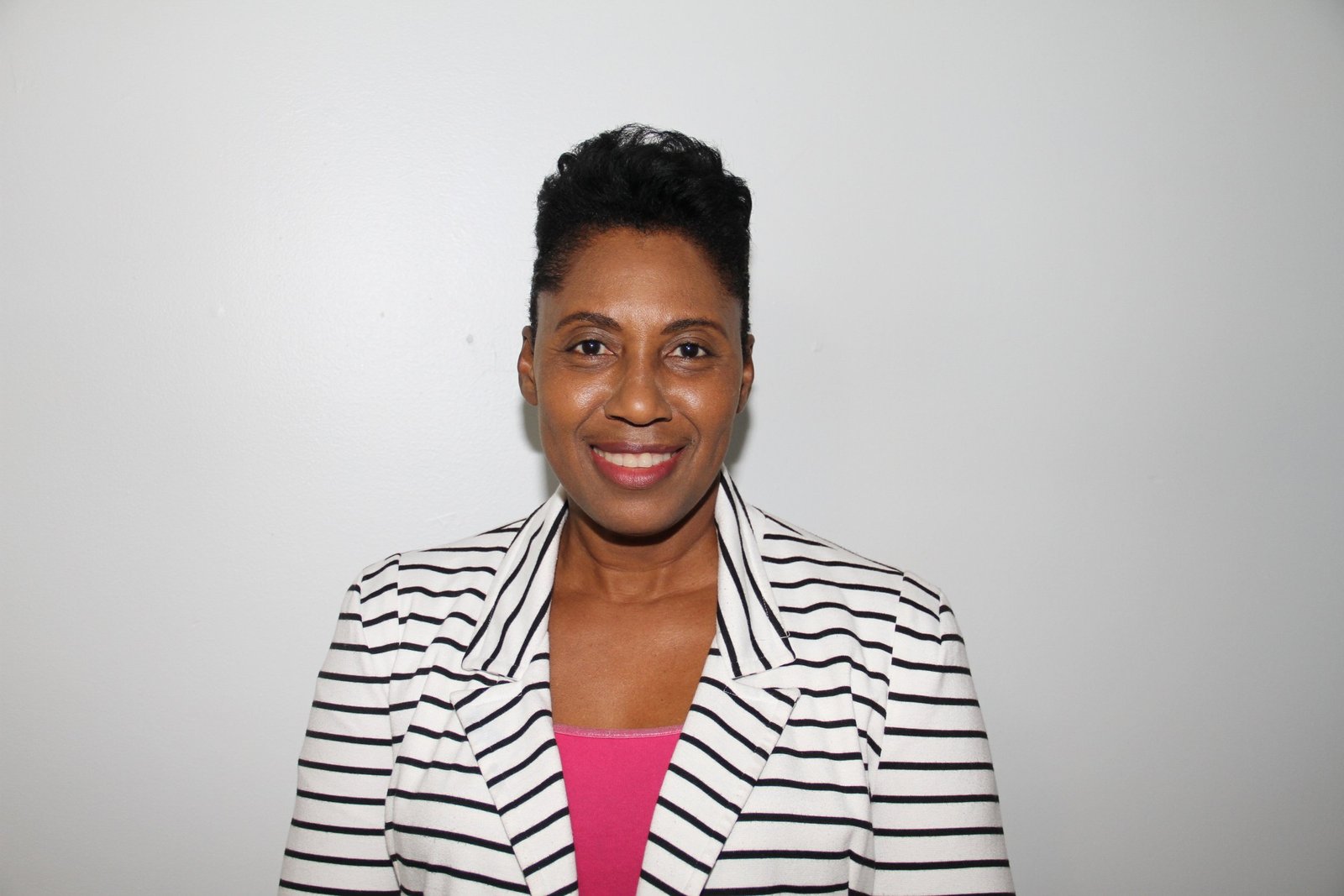
Ruth Bingham, MSW, RSW
Faculty, Becoming Institute | Co-Founder, Winrose Oasis Counselling Services
Specialization: Intergenerational Trauma, Faith-Integrated Healing, Women’s Emotional Wellness
Ruth Bingham is a Registered Social Worker, wellness advocate, and co-founder of Winrose Oasis Counselling Services. With over a decade of experience supporting individuals, families, and communities, Ruth is known for her spiritually grounded, culturally affirming approach to trauma recovery and emotional healing.
Her work focuses on helping clients navigate the impacts of intergenerational trauma, spiritual disconnection, life transitions, and relational challenges. Ruth blends mainstream clinical methods—including cognitive behavioural therapy, brief solution-focused therapy, and narrative approaches—with holistic and faith-integrated healing traditions. Her practice is deeply person-centered and strengths-based, emphasizing the restoration of dignity, self-worth, and inner peace.
Ruth holds a Master of Social Work degree from Wilfrid Laurier University and brings expertise in anxiety, depression, grief, parenting, self-esteem, and Christian counselling. She has a special passion for supporting midlife women and individuals seeking meaning, purpose, and authentic connection.
In her role as faculty at the Becoming Institute, Ruth offers students a rare blend of clinical wisdom, spiritual insight, and cultural responsiveness. Whether teaching, counselling, or speaking publicly, she is dedicated to restoring hope and cultivating wholeness—body, mind, and spirit—through grounded, compassionate care.
This isn’t just training—it’s transformation.
🌱 Move Beyond Symptom Management
Ground your work in evidence-based trauma recovery—not just talk therapy. Learn to guide clients through emotional, somatic, and relational healing at the root.
🛠 Expand Your Treatment Toolkit
Gain structured tools in assessment, session flow, and follow-up—alongside somatic, mindfulness, and nervous system regulation techniques that align with CRPO and CNO standards.
📊 Improve Client Outcomes with Confidence
Use the Becoming Method® to create trauma-informed care plans, navigate complex trauma responses, and support sustainable breakthroughs for diverse client needs.
🧭 Practice with Ethical Clarity
Integrate Safe and Effective Use of Self (SEUS) principles and apply clear therapeutic boundaries, documentation practices, and cultural safety in real-world clinical settings.
🧠 Trauma Relief That Goes Beyond Coping
Guide clients through emotional and somatic breakthroughs using structured interventions designed to resolve—not just manage—trauma symptoms.
🪞 Release from Shame, Fear & False Narratives
Help clients uncover the root of long-held beliefs and emotional pain, so they can reclaim agency, self-worth, and a new personal truth.
🧭 Reconnection with Identity, Intuition & Meaning
Facilitate lasting transformation by supporting clients in rebuilding their sense of self, strengthening inner resilience, and rediscovering purpose.
🔗 Safer, More Regulated Therapeutic Relationships
Create a space of trust and co-regulation by grounding your sessions in emotional attunement, cultural humility, and the Safe and Effective Use of Self (SEUS).
🔥 Reconnect with Your Purpose
Rediscover why you chose this path—and reignite your passion for care, healing, and meaningful connection through the lens of trauma recovery.
🤝 Join a Mission-Driven Community
Surround yourself with a growing network of nurses, psychotherapists, and healing professionals dedicated to embodied care, equity, and collective transformation.
🛡️ Build Emotional Strength and Sustainability
Strengthen your capacity to hold space for others without losing yourself in the process. Learn practices that support nervous system regulation, boundaries, and emotional recovery.
🌍 Expand Your Scope and Influence
Position yourself as a trauma-informed leader—whether you’re starting a private practice, mentoring peers, or embedding change within clinical and community systems.

To get started, you’ll need to:
✅ Be a Registered Nurse in good standing with the College of Nurses of Ontario (CNO)
✅ Complete the Becoming Method® Intensive (3-Day Foundational Training)
✅ Apply and be accepted into the RN–Psychotherapist Credentialing Pathway
Once accepted, you’ll move through a structured process designed to equip you with the skills, supervision, and clinical experience required to deliver psychotherapy with confidence—and in alignment with current CNO and CRPO expectations.
Yes—if you are registered with the College of Nurses of Ontario (CNO) and you determine that you have the knowledge, skill, and judgment to practice psychotherapy. According to the CNO’s psychotherapy practice standard, RNs can independently assess their readiness to perform the controlled act of psychotherapy.
This program provides the education and supervised practice to help you meet that threshold and operate safely within your scope. You may also choose to pursue dual registration with the College of Registered Psychotherapists of Ontario (CRPO), depending on your career goals.
This program is designed specifically for nurses who are passionate about mental health and ready to take the next step in their practice. It’s ideal for:
If you’re ready to develop the knowledge, skill, and insight to practice psychotherapy safely and effectively, this program is built for you.
You’ll be equipped to deliver trauma-informed psychotherapy and recovery-focused care using the Becoming Method®—a structured, evidence-informed approach grounded in deep healing and emotional regulation.
Graduates are prepared to:
Whether you’re stepping into a new role or deepening an existing one, this program empowers you to serve with clinical skill, ethical clarity, and emotional presence.
The RN–Psychotherapist Credentialing Program is offered in three progressive levels, allowing you to build competence step by step:
Level 1: A 3-day intensive training that introduces you to the Becoming Method® alongside a cohort of like-minded nurses
Level 2: A 16-week training experience that includes four advanced trauma recovery courses and a 1,000-hour supervised practicum
Level 3 (Optional): An 8–12 month early career placement where you receive mentorship, coaching, and clinical supervision while working in a full-time mental health role. During this phase, you may also complete additional electives from the 12-Month Trauma Recovery Certificate Program
Those who complete the full course load (Levels 1–3 with electives) may use the title Certified Trauma Recovery Specialist.
You can move through the program at your own pace or as part of a structured cohort, depending on your career goals and availability.
The full RN–Psychotherapist Credentialing Program costs $9,995, which includes all required coursework, a 1,000-hour supervised practicum, and access to early career placement support.
Courses can also be taken individually at $1,249 each, offering flexibility for nurses who wish to progress gradually.
If you choose to complete the full 12-Month Trauma Recovery Certificate Program, which includes additional electives, the total cost is $16,500. Graduates of the full certificate earn the designation Certified Trauma Recovery Specialist.
Funding Opportunities:
We are actively building employer partnerships to ensure smooth transitions into funded roles and long-term career growth.
Yes. Job placement is guaranteed for nurses who require support transitioning into the field.
Graduates who are not already employed in psychotherapy or mental health roles will be connected to an early career placement with a mental health, addiction, or community-based organization. These placements are aligned with your scope, training, and long-term goals, and include mentorship, supervision, and professional coaching.
If you are already employed in a relevant role or plan to establish a private practice, the program fully supports you in applying what you’ve learned within your existing context. You’ll still gain access to faculty mentorship, peer support, and business readiness resources to help you thrive.
This program is not officially endorsed by the College of Nurses of Ontario (CNO) or the College of Registered Psychotherapists of Ontario (CRPO)—nor does it require formal approval to operate.
Instead, it is strategically aligned with both regulators’ published practice standards. Nurses in Ontario are legally permitted to practice psychotherapy if they possess the knowledge, skill, and judgment to do so safely and ethically under the CNO’s Psychotherapy Practice Standard.
What makes this program unique is that it was created by nurses, for nurses—eliminating the need to leave the profession or invest years in training designed for other disciplines. It offers a clear, structured, and regulatory-aligned pathway for nurses who want to integrate psychotherapy into their practice or pursue dual registration with CRPO.
We are actively engaging with regulators across Canada to ensure long-term clarity, collaboration, and recognition as this training model grows.
Next Cohort: Jan. 9- Apr. 24
Use code EARLYBIRD149 to get early bird discount
By submitting your email address, you acknowledge and agree to becominginstitute.ca Terms of Service and Privacy Policy.



Introduction to Psychotherapy


Mindful Fitness: SelfHealing Practices for Psychotherapists


Forgiveness & Holistic Trauma Recovery
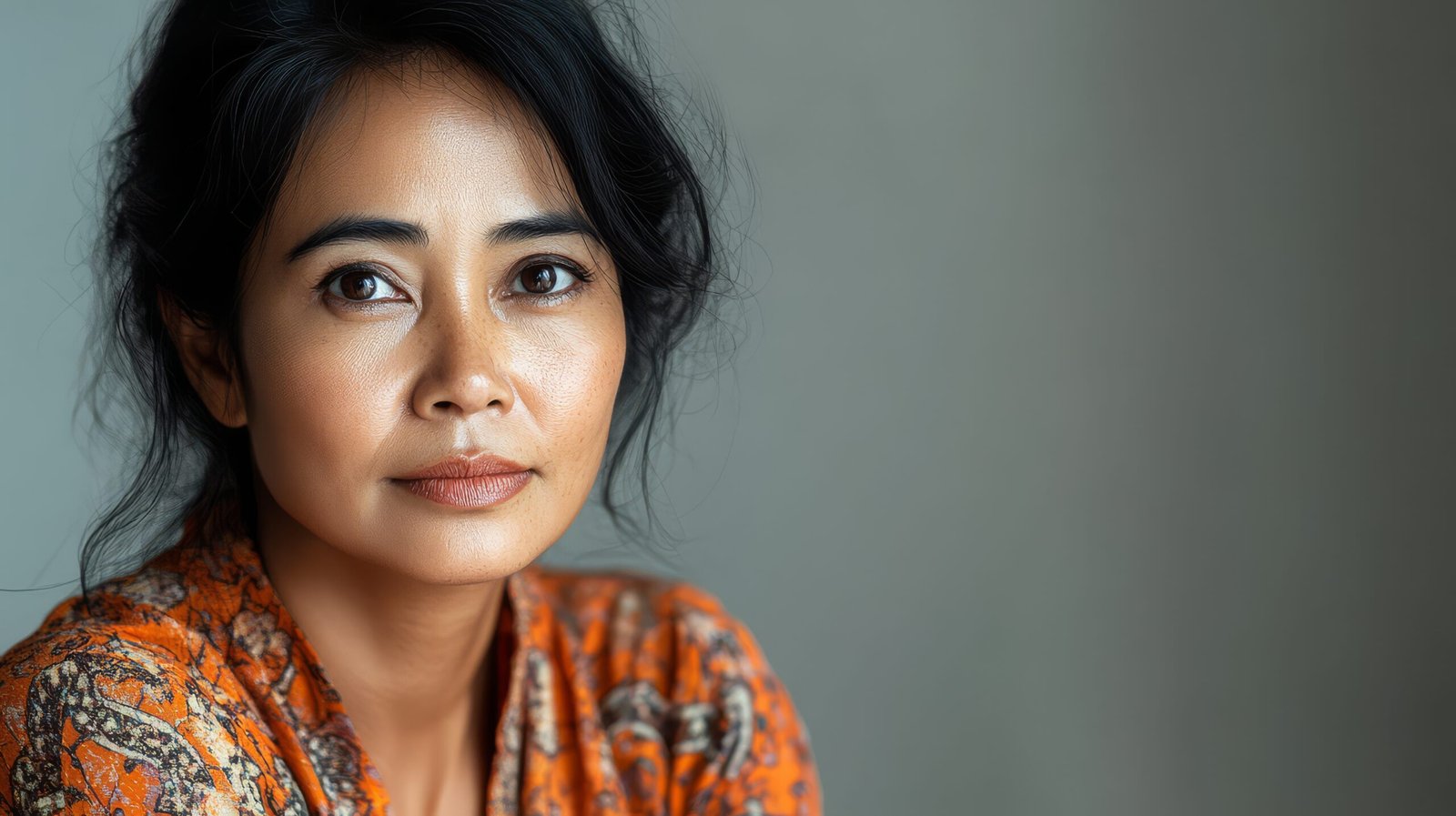

Ubuntu: African & Indigenous Ways of Knowing & Being


Introduction to Psychotherapy


Mindful Fitness: SelfHealing Practices for Psychotherapists


Forgiveness & Holistic Trauma Recovery


Ubuntu: African & Indigenous Ways of Knowing & Being